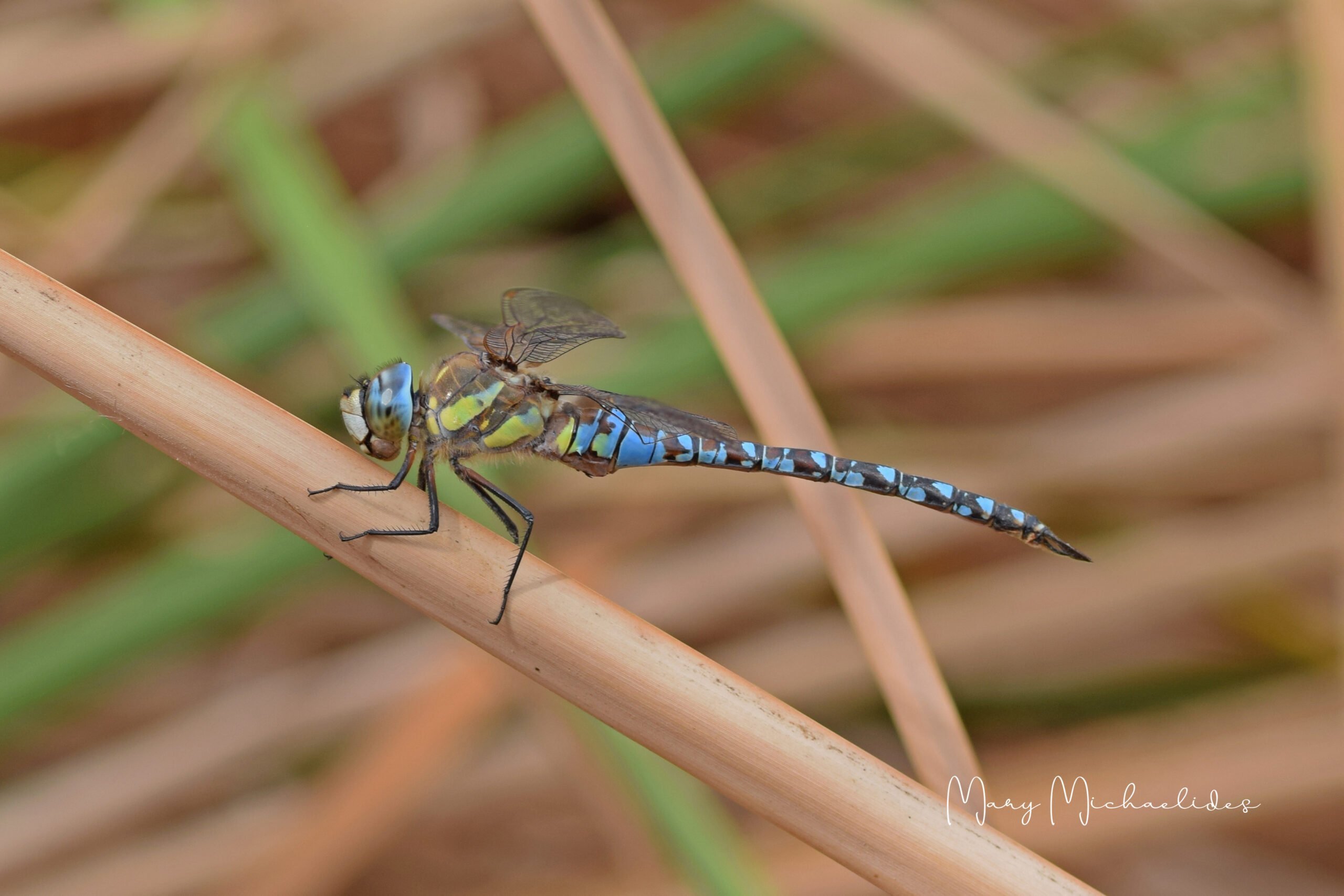This week (from 25 June – 3 July) around 80 scientists, from 23 countries, converge on Paphos for the World Dragonfly Congress, a biennial meeting for the sharing of research into the world of dragonflies and damselflies. Over four days, participants will present work covering areas such as evolution, genetics, conservation and the effects of climate change.
New techniques of genetic analysis are making it possible to trace the evolutionary path of the world’s 6,000+ species of dragonflies and damselflies (collectively known as Odonata) and work out their family tree. Dragonflies are among the oldest orders of insects, with their ancestors flying through the forests of the Carboniferous period, 320 million years ago. It is also noteworthy that species more than 200 million years ago were already very similar to those we see today. The two main groups, dragonflies and damselflies (the former more robust and fast-flying; the latter slender and flitting delicately among vegetation) seem to have separated from a common ancestor in the Triassic period (250 – 200 million years ago).
Dragonfly populations can tell us a lot about natural areas – is there is a healthy environment with fresh water and a diversity of living things? They begin their lives as aquatic larvae in streams and ponds, where they eat mosquito larvae and other small pondlife. As adults they prey on mosquitos and any other small flying insects, which in turn need flowers to feed on. Dragonflies in their turn are food for birds, frogs and sometimes even lizards. Scientists attending the congress are pushing for dragonflies to be accepted as a European “fresh-water bio-indicator” since not only do they provide evidence of water and habitat quality but also of climatic trends.
According to the Congress Organiser, Dr David Sparrow, the impact of climate change on Cyprus dragonflies is very obvious. Cyprus has a mixture of heat-loving dragonflies, including some mainly African and tropical Asian species, which are increasing in abundance here, and species which prefer cooler conditions and are mainly found in Europe. These are decreasing and retreating to higher altitudes.
Cyprus’ position at the meeting point of three continents makes it a fascinating place to hold the congress. Cyprus is also representative of the environmental challenges facing much of the Mediterranean and the Levant, notably the decline in fresh, flowing water habitats.
As well as four conference days, the scientists will spend four days in the field, visiting a variety of habitats to see many of Cyprus’ 37 species of dragonflies.
ICO2023 is organised by the Cyprus Dragonfly Study Group and Terra Cypria (the Cyprus Conservation Foundation) in conjunction with the World Dragonfly Association, and is hosted by Neapolis University.
ICO stands for International Congress of Odonatology. World congresses are held every two years, in different countries and on different continents.




